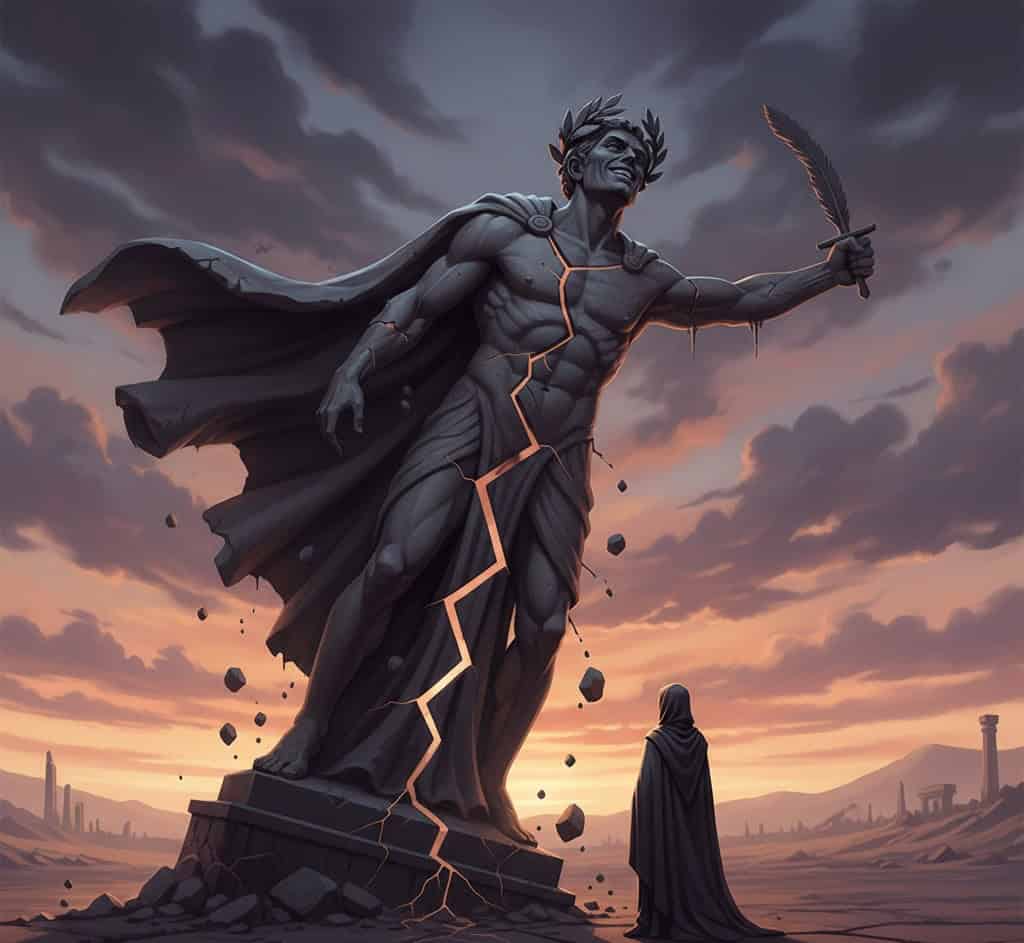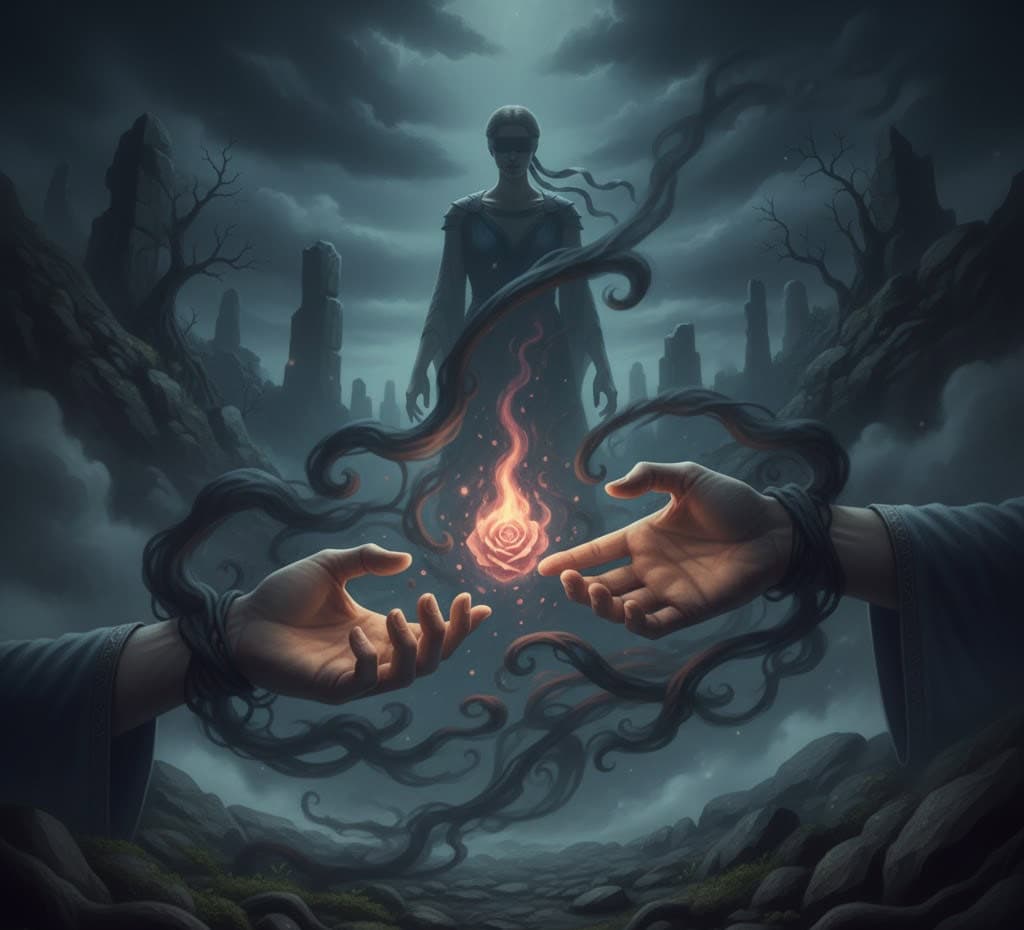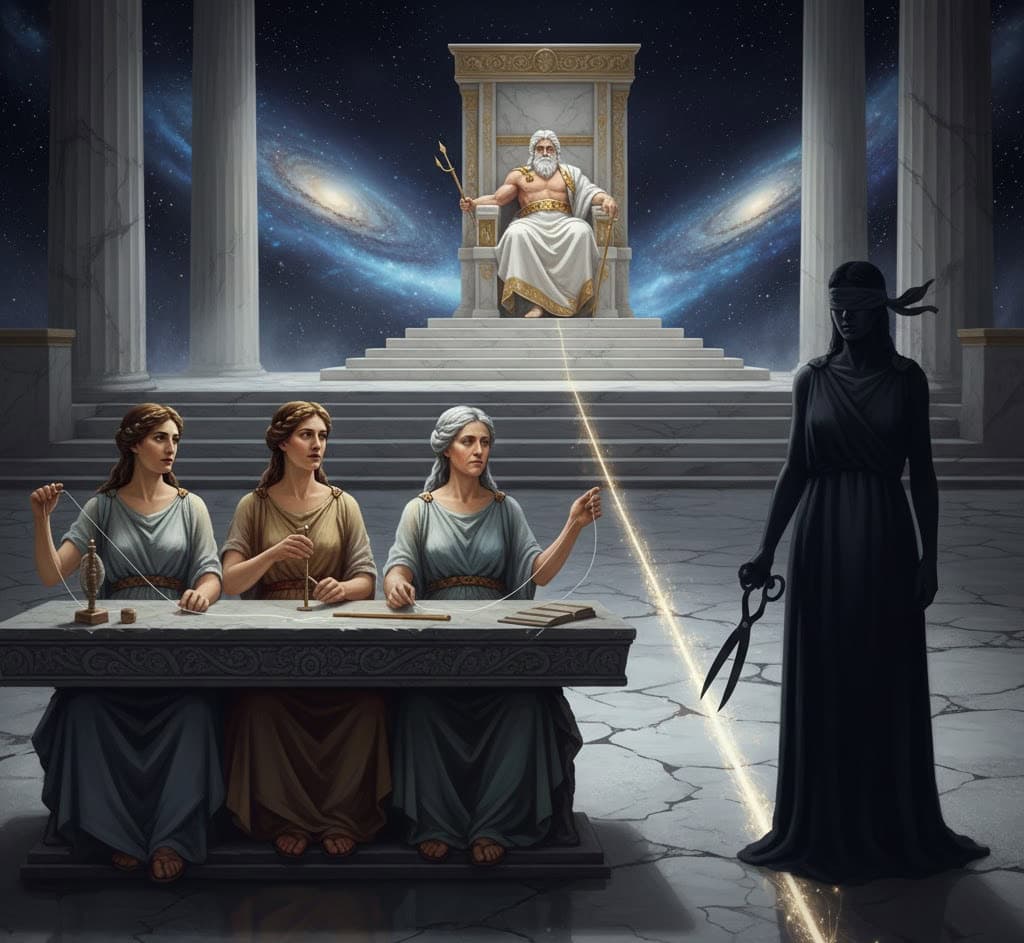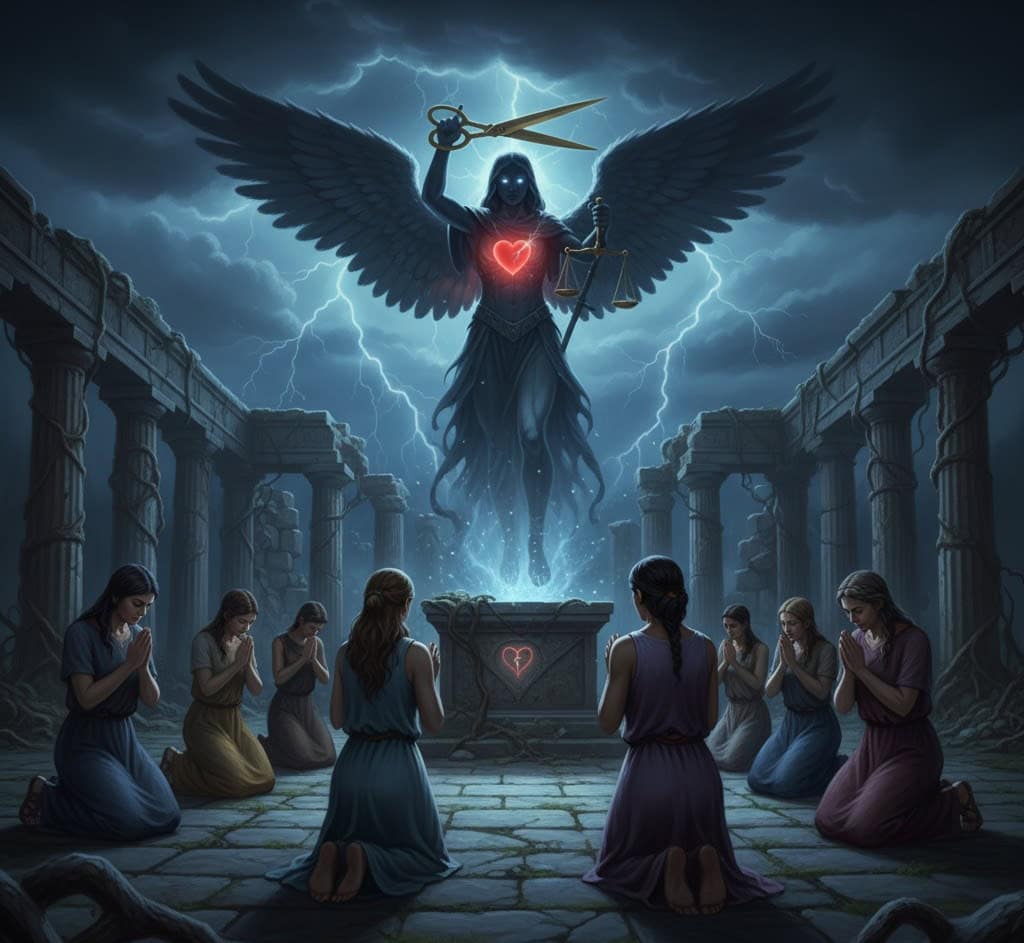In Greek mythology, Nemesis was the goddess of retribution, the one who restored balance when pride, greed, or cruelty tipped the scales too far.
She was neither cruel nor kind, but something in between, a force that made sure no one escaped the consequences of their actions.
Whether she punished arrogant kings, meddled in tales of doomed love, or reminded the gods themselves of their limits, Nemesis was always there, quietly turning fate’s wheel.
Her role in mythology is vast, showing how justice, pride, and love often twist together in unexpected ways.
1. Nemesis, the Balancer of Fate
Nemesis was often called the one who kept the universe fair. When mortals or gods grew too proud of their power, beauty, or fortune, she was the invisible hand that brought them back down to earth.
She was not driven by malice but by the need to maintain equilibrium. If someone had too much joy or success, she ensured that life would balance it with struggle.
In ancient stories, people feared to boast too loudly or celebrate too openly, believing that Nemesis might hear and decide to even the score.
She reminded mortals that the world’s balance was delicate, and no one was above it.
2. Nemesis and Narcissus
The story of Narcissus is one of Nemesis’s most famous appearances. Narcissus was a young man so beautiful that everyone who saw him fell in love.
Yet he rejected them all, caring only for his own reflection. Heartbroken nymphs prayed for justice, and Nemesis answered.
She led him to a still pool, where he became obsessed with his own image, unable to look away.
He eventually withered and died by the water’s edge, transformed into the flower that bears his name.
Through Narcissus, Nemesis taught the lesson that self-love without compassion becomes destruction. Her punishment was not cruel but poetic, giving him the mirror of his own heart.
3. The Punisher of Hubris
Nemesis was the ultimate opponent of hubris, the dangerous pride that made mortals believe they were greater than the gods.
Kings who claimed divine status, warriors who defied fate, and poets who mocked the heavens all felt her wrath.
She never struck immediately but waited until arrogance had grown fat and loud. Then she acted, cutting it down at its peak.
Her justice was not revenge but correction, restoring humility where vanity had taken root.
In this way, Nemesis was both feared and respected, a reminder that pride always comes before the fall.
4. Nemesis and the Lovers’ Curse
In some myths, Nemesis became involved in matters of the heart, punishing love that turned deceitful or obsessive.
When people played with emotions or used affection for personal gain, she made sure they faced the consequences.
Some stories tell of her watching over unfaithful lovers, ensuring that betrayal never went unreturned. Others portray her as a quiet avenger who turned passion into loss when love became cruel.
Her influence turned the sweetness of romance into a lesson about sincerity, showing that love built on ego was doomed to crumble.
5. Nemesis as the Shadow of Fortune
The Greeks believed that Nemesis walked hand in hand with Tyche, the goddess of luck. When Tyche blessed someone with good fortune, Nemesis followed close behind to ensure it did not corrupt them.
She was the shadow of every stroke of luck, the whisper that reminded the fortunate not to grow arrogant.
If a man became too proud of his success, Nemesis might take it away, reminding him that luck is fleeting.
This partnership made her less of a villain and more of a cosmic safeguard. Where Tyche gave, Nemesis took away, keeping fate’s balance from tipping too far in one direction.
6. The Birth of Helen of Troy
In one version of her myth, Nemesis herself became the mother of Helen of Troy. Zeus, desiring her, pursued her across the world.
To escape him, Nemesis transformed into a goose, but Zeus turned into a swan and caught her. From their union came an egg, which was later given to Queen Leda, who raised Helen as her own.
This story paints Nemesis not only as a punisher but as a reluctant participant in one of the most famous love stories in mythology.
Her daughter’s beauty would later spark the Trojan War, proving once again that Nemesis’s touch always carried the seed of both fate and ruin.
7. Nemesis and the Fall of Kings
Throughout Greek tales, Nemesis often targeted rulers who abused their power. When kings demanded worship as gods or treated their people as lesser beings, she was the one who orchestrated their downfall.
She did not need thunderbolts or armies. Instead, she used time, guilt, and fate itself. A whisper in the wind, a twist of circumstance, a single moment of reckoning was enough.
Her justice came quietly, sometimes in the form of betrayal or decay, until those who had stood too tall found themselves brought low.
In her world, arrogance was the true crime, and she was its inevitable punishment.
8. Nemesis as a Protector of the Innocent
Though known for punishment, Nemesis also protected those wronged by greed or pride.
She was invoked by victims of betrayal and those who suffered unjustly, especially at the hands of the powerful.
When people cried out for fairness, she was the one who listened. In this role, she became a symbol of moral strength, the quiet guardian of fairness in an unfair world.
Ancient Greeks prayed to her not to destroy their enemies but to balance the scales. Her justice was precise, giving each person what they deserved, neither more nor less.
9. Nemesis and the Judgment of the Gods
Even the gods were not entirely free from Nemesis’s gaze. When they broke their own moral laws or mocked fate’s design, she reminded them that they, too, could fall.
In some myths, she stood beside the Moirai, the Fates, helping them ensure that destiny followed its proper path.
Her authority was subtle but immense, for she represented the universe’s natural order. Even Zeus, the king of the gods, respected her, knowing that excessive pride could call her forth.
Nemesis was not against the gods but was the boundary that even they could not cross without consequence.
10. Nemesis in the Hearts of Mortals
Beyond her divine roles, Nemesis lived on as an idea inside the human heart. She represented that moment when conscience whispers that someone has gone too far.
In every culture, people have felt the pull of balance and the sting of karma, both of which echo her ancient name.
For the Greeks, she was a goddess, but for later generations, she became the feeling of justice itself. Her presence was in every downfall of the arrogant and every triumph of the humble.
She was not only a myth but a reflection of humanity’s deep belief that balance must always return, no matter how long it takes.

Ho sempre sentito una forte connessione con il Divino fin dalla mia nascita. Come autrice e mentore, la mia missione è aiutare gli altri a trovare l'amore, la felicità e la forza interiore nei momenti più bui.











